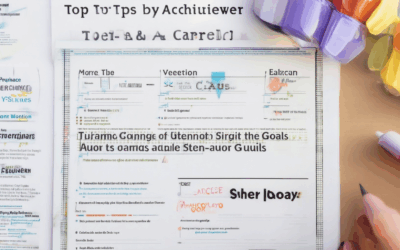Stress has become a pervasive challenge in our modern lives, affecting individuals across all ages and walks of life. Whether it’s the demands of a high-pressure job, the chaos of family responsibilities, or the constant buzz of social media, stress has a way of creeping into every aspect of our existence. Recognizing the profound impact stress can have on both mental and physical health, many people are seeking effective ways to manage and reduce its effects. From quick relaxation techniques to sustainable lifestyle changes, there are countless methods to alleviate stress and improve overall well-being. In this comprehensive guide, we delve into proven stress reduction methods, exploring everything from mindfulness practices to practical strategies for managing stress in both personal and professional settings. By understanding the science behind stress and implementing actionable techniques, anyone can learn to regain control over their life and embrace a more balanced, fulfilling existence.

What Are the Five Best Ways to Reduce Stress?
Reducing stress is essential for maintaining overall well-being. Here are five effective strategies to help manage stress:
- Breathing Techniques : Practice deep breathing exercises to calm your mind and body. Inhale deeply through your nose for four counts, hold for four seconds, and exhale slowly through your mouth for six counts. Repeat this process several times to reduce tension.
- Mindfulness and Meditation : Allocate a few minutes daily to meditate. Focus on your breath or a mantra to clear your mind. This practice helps lower stress levels and improves emotional resilience.
- Physical Activity : Engage in moderate exercise like walking, jogging, or yoga. Physical movement releases endorphins, which can alleviate stress and boost mood.
- Healthy Diet : Consume foods rich in vitamins and minerals that support brain health, such as leafy greens, nuts, and whole grains. Avoid processed foods and sugary drinks, which can exacerbate stress.
- Quality Sleep : Prioritize getting 7-9 hours of quality sleep each night. Poor sleep can lead to increased stress and fatigue, affecting your ability to cope with daily challenges.
By incorporating these techniques into your routine, you can effectively manage stress and enhance your overall quality of life. Remember to be patient and kind to yourself during this process, as reducing stress is a journey that takes time and consistent effort.
Top 10 Stress-Reduccing Techniques
- 1. Deep Breathing Exercises: Practice the 4-7-8 method: Inhale deeply for 4 seconds, hold for 7 seconds, exhale for 8 seconds. Repeat several times to calm your mind and body.
- 2. Mindfulness Meditation: Spend 5-10 minutes daily focusing on your breath or a mantra. This helps clear your mind and reduces stress.
- 3. Regular Exercise: Engage in physical activity like walking, jogging, or yoga to release endorphins and improve your mood.
- 4. Gratitude Journaling: Write down three things you’re grateful for each day. This shifts your focus from stress to positivity.
- 5. Progressive Muscle Relaxation: Tense and then relax each muscle group from toes to head. This helps relieve physical tension caused by stress.
- 6. Incorporate Laughter: Watch a comedy or share jokes with friends. Laughter triggers the release of feel-good hormones called endorphins.
- 7. Listen to calming Music: Play soothing music or nature sounds to help your brain enter a relaxed state.
- 8. Connect with Nature: Spend time outdoors, whether it’s a walk in the park or sitting under a tree. Exposure to natural environments can lower stress levels.
- 9. Limit Stimulus Intake: Reduce screen time and avoid overconsumption of news or social media. Replace negative inputs with positive activities.
- 10. Get Adequate Sleep: Prioritize sleep to allow your body and mind to recover. Adults should aim for 7-9 hours per night.

What are the 5 Rs of stress management?
The 5 Rs of stress management are a popular framework used to guide individuals through managing stress effectively. Here’s a breakdown of each component:
-
Recognize : Start by acknowledging the presence of stress and understanding its triggers. Recognizing stress early can prevent it from escalating. Identify the specific situations or emotions causing stress and reflect on how you typically respond to these situations.
-
Respond : Once stress is recognized, respond in a calm and constructive manner. This could involve practicing deep breathing exercises, engaging in physical activity, or reaching out to supportive friends or family members. Effective responses often involve emotional regulation techniques.
-
Resolve : Address the root cause of stress. This may require problem-solving skills to find practical solutions or seeking professional help if needed. Resolving stress involves taking proactive steps to eliminate or reduce the source of pressure.
-
Relabel : Reframe stressful situations by adopting a more positive perspective. Relabeling involves reinterpreting challenging experiences in a way that reduces anxiety. For example, viewing a deadline as a motivator rather than a threat can alleviate stress.
-
Reframe : Finally, approach stress with a mindset that focuses on growth and resilience. Reframing involves seeing challenges as opportunities for learning and development. This psychological shift can significantly reduce stress and improve overall well-being.

What Are the 3 Main Strategies to Reduce Stress?
Reducing stress is essential for maintaining overall well-being, and several proven strategies can help manage it effectively. Here are three primary approaches:
- Adopt a Regular Routine : Consistency helps create a sense of control and predictability, which can significantly reduce stress. Stick to a daily schedule that includes adequate sleep, nutritious meals, and regular physical activity.
- Practice Mindfulness and Relaxation Techniques : Techniques like meditation, deep breathing exercises, and progressive muscle relaxation can help calm the mind and body. These practices promote a state of awareness and reduce anxiety.
- Build a Strong Support Network : Surround yourself with positive influences and trusted friends or family members who can offer emotional support and encouragement during challenging times.
By integrating these strategies into your daily life, you can better manage stress and improve your mental and emotional health. Remember, taking proactive steps toward reducing stress is a powerful way to enhance your overall quality of life.
How to Reset Your Body from Chronic Stress
To reset your body from chronic stress, consider implementing the following comprehensive strategy:
-
Reduce Cortisol Levels : Practice mindfulness, meditation, and deep breathing exercises to lower stress hormones like cortisol. Aim for 7-9 hours of quality sleep nightly to support adrenal function.
-
Balanced Diet : Consume antioxidant-rich foods, omega-3 fatty acids, fruits, vegetables, whole grains, and lean proteins. Limit processed foods, sugar, caffeine, and alcohol.
-
Regular Physical Activity : Engage in moderate exercise like walking, yoga, or jogging for at least 30 minutes daily to boost endorphins and reduce stress.
-
Social Support : Maintain strong social ties with friends and family for emotional support. Engage in hobbies or volunteer work to find purpose and reduce stress.
-
Healthy Work-Life Balance : Set clear boundaries between work and personal life. Take regular breaks, delegate tasks, and prioritize to avoid burnout.
-
Supplement Wisely : Consider B-vitamins and vitamin D supplements after consulting a healthcare provider. These may aid in energy and mood regulation.
-
Monitor and Track Progress : Use apps or journals to track stress levels and progress. Regular health check-ups can help identify and address underlying issues.
-
Seek Professional Help : If stress becomes overwhelming, consult a therapist for personalized strategies and support.
By integrating these strategies, you can holistically address chronic stress and promote overall well-being.

How to Control Stress and Overthinking
Stress and overthinking can take a toll on your mental and emotional well-being. Here’s a step-by-step guide to help you regain control and find peace:
- Mindfulness and Meditation : Practice mindfulness daily to stay grounded. Start with just 5 minutes a day and gradually increase. Focus on your breath and observe your thoughts without judgment. This helps reduce anxiety and clears your mind.
- Physical Activity : Engage in exercise to release tension. Whether it’s yoga, jogging, or simply stretching, movement helps relieve stress and improves mood.
- Lifestyle Adjustments : Ensure you’re getting enough sleep, eating nutrient-rich foods, and staying hydrated. Avoid processed sugars and excessive caffeine, which can exacerbate stress.
- Time Management : Set realistic goals and prioritize tasks. Breaking larger projects into smaller steps can make them feel more manageable and less overwhelming.
- Cognitive Behavioral Techniques : Identify and challenge negative thoughts. Replace anxious thoughts with positive affirmations or actionable steps. This helps reduce overthinking and fosters confidence.
- Emotional Regulation : Learn to manage emotions constructively. Practice deep breathing exercises when feeling overwhelmed, allowing yourself time to process feelings without judgment.
By incorporating these strategies into your daily life, you can better control stress and reduce overthinking. Remember, progress takes time, and every small effort counts toward building a calmer, more balanced life.




0 Comments